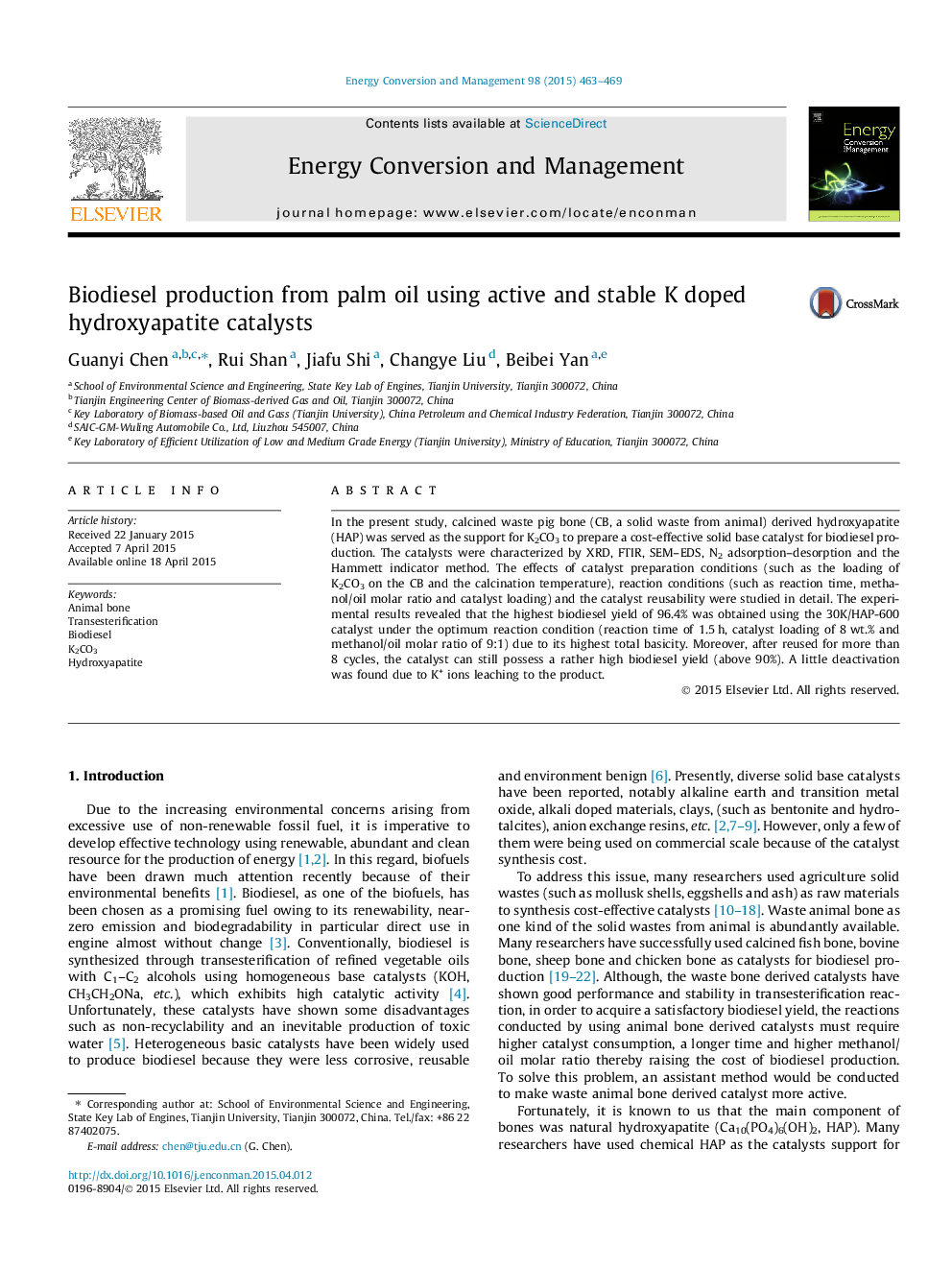| کد مقاله | کد نشریه | سال انتشار | مقاله انگلیسی | نسخه تمام متن |
|---|---|---|---|---|
| 763757 | 1462864 | 2015 | 7 صفحه PDF | دانلود رایگان |

• Novel heterogeneous animal bone-based catalysts were developed.
• The optimum catalyst is 30K/HAP-600.
• Maximum biodiesel yield of 96.4% was achieved using the novel catalyst.
• The novel catalyst can achieve a desirable recyclability.
• Little deactivation was found due to K+ ions leaching to the product.
In the present study, calcined waste pig bone (CB, a solid waste from animal) derived hydroxyapatite (HAP) was served as the support for K2CO3 to prepare a cost-effective solid base catalyst for biodiesel production. The catalysts were characterized by XRD, FTIR, SEM–EDS, N2 adsorption–desorption and the Hammett indicator method. The effects of catalyst preparation conditions (such as the loading of K2CO3 on the CB and the calcination temperature), reaction conditions (such as reaction time, methanol/oil molar ratio and catalyst loading) and the catalyst reusability were studied in detail. The experimental results revealed that the highest biodiesel yield of 96.4% was obtained using the 30K/HAP-600 catalyst under the optimum reaction condition (reaction time of 1.5 h, catalyst loading of 8 wt.% and methanol/oil molar ratio of 9:1) due to its highest total basicity. Moreover, after reused for more than 8 cycles, the catalyst can still possess a rather high biodiesel yield (above 90%). A little deactivation was found due to K+ ions leaching to the product.
Journal: Energy Conversion and Management - Volume 98, 1 July 2015, Pages 463–469